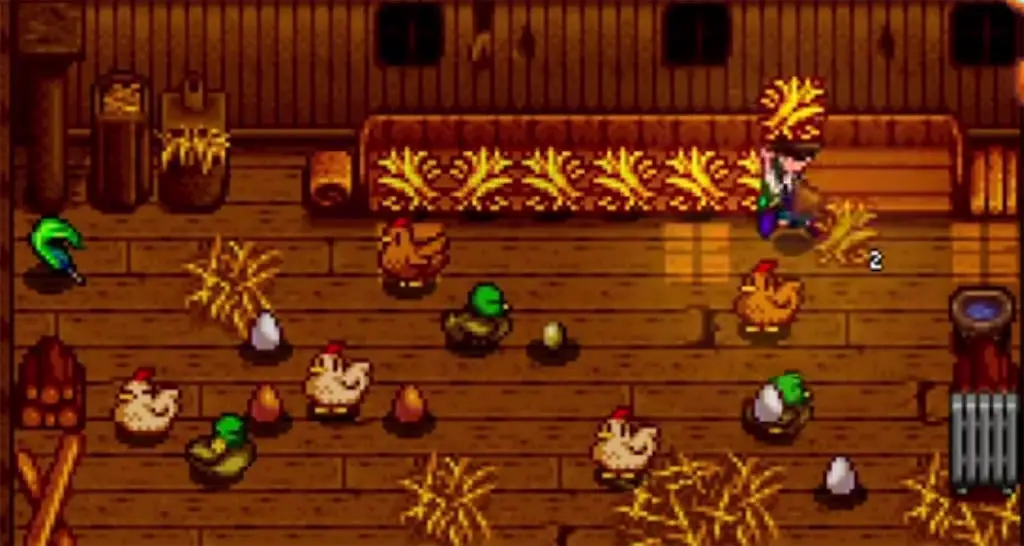The Ultimate Guide to Animal Husbandry in Stardew Valley: From Chickens to Ostriches
Animal husbandry is a critical aspect of Stardew Valley, impacting everything from your daily income to relationship building with villagers. Understanding each animal’s quirks and benefits can vastly improve your farming experience. In this comprehensive guide, we delve into each animal type to give you a leg-up in your farming journey.
Chickens
Chickens are the bread and butter of Stardew Valley animal husbandry. They provide a consistent source of income through their eggs, which can also be used in cooking recipes. You can also donate eggs to the museum or use them for offerings.
Income
- Eggs: 50g
- Large Eggs: 100g

Ducks
Ducks are less productive than chickens but offer a different range of products, including duck feathers. Their eggs are also useful for offerings and cooking.
Products
- Duck Eggs
- Duck Feathers (High-quality product)
Income
- Duck Eggs: 75g
- Duck Feathers: 200g

Dinosaurs
Though not traditional farm animals, dinosaurs in Stardew Valley are more like pets. Their eggs are a low-yield product but can be used for various purposes such as making Dinosaur Hats or donated to the museum.
Products
- Dinosaur Eggs
Income
- Dinosaur Eggs: 100g

Void Chickens
These mysterious birds lay Void Eggs. While initially more profitable than regular chickens, they’re less so in the long run.
Income
- Void Eggs: 100g
Rabbits
Rabbits offer two types of products: rabbit’s foot and wool. Both are useful for offerings and the former is a favorite gift among many villagers.
Products
- Wool
- Rabbit’s Foot (High-quality product)

Cows
Cows are reliable animals that produce milk daily. The milk can be processed into cheese or used for offerings.
Products
- Milk
- Large Milk (High-quality product)
Income
- Milk: 150g
- Large Milk: 250g

Goats
Goats are less productive but their products can also be turned into cheese.
Products
- Goat Milk
- Large Goat Milk (High-quality product)

Sheep
Sheep are unique for their wool, which can be sheared every few days. With certain upgrades and good care, they can even produce wool daily.
Products
- Wool
Income
- Wool: 300g

Pigs
Pigs are high-maintenance but also high-reward. They produce truffles that can be processed into truffle oil. These can be a significant source of income.
Products
- Truffles
Income
- Truffles: 1250g

Ostriches
Ostriches are late-game animals that provide decent income. They are more like pets and are not available until later in the game.

Conclusion
Animal husbandry in Stardew Valley offers a rich and rewarding experience. Each animal comes with its unique benefits and challenges, contributing to the complexity and enjoyment of the game. With this guide, you are now better equipped to maximize your farming venture in the valley.